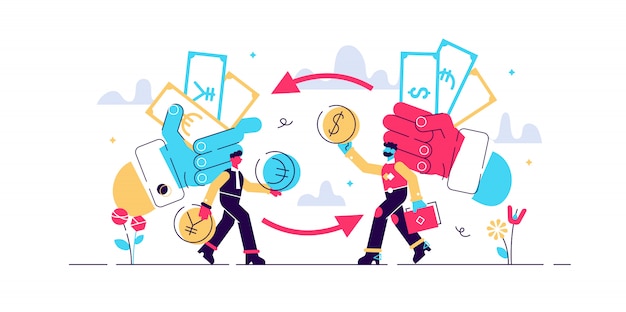Let’s talk about this thing called the sharing economy. Some people call it the gig economy, others the peer economy, and some even call it the collaborative economy. But what’s in a name? What matters is what it is and how it works.
The sharing economy is like a big, flexible network that lets people swap stuff, both tangible and intangible, on a large scale. This often shakes up traditional retail or employment setups by making transactions smoother and cutting out the middlemen.
Think about it. You can now borrow money directly from other people, share an office with loads of different companies, or even crash at a stranger’s place instead of a hotel when you’re traveling. This is all thanks to the sharing economy. It makes it easier to share resources on demand, which boosts efficiency. It also lets people get by without owning expensive items like cars, while giving others a chance to make some cash from things they’re not using or skills they have.
None of this would be possible without technology. Almost all forms of this collaborative consumption use the internet to connect providers with customers. Whether it’s renting a house through Airbnb, sharing a car on Turo, or renting out your extra space through Neighbor.com, it’s all done online.
So, who can be part of the sharing economy? Well, anyone really. In fact, you’re probably already part of it without even realizing. And if you’re not, you probably will be soon. Here are some examples of what we mean when we talk about the sharing economy:
-
Peer-to-Peer Lending: This is where platforms let people lend and borrow money without going through a traditional bank. The interest rate is usually set by the platform based on the borrower’s credit history. But the person who lends the money takes on the risk. This kind of lending is becoming more and more popular, and it’s all thanks to the internet, innovative startups, and increasing regulation of traditional banks.
-
Crowdfunding: This is similar to peer-to-peer lending, but instead of lending money, people donate it. Platforms like Kickstarter and Indiegogo let entrepreneurs, artists, and others pitch their ideas to a community of potential funders. They set a target amount and a deadline, and then anyone can contribute. Some campaigns work like grants, where people give money knowing they won’t get it back, while others are more like investment rounds, where people invest in exchange for a stake in the company.
-
Apartment/House Renting and Couchsurfing: Platforms like Airbnb, Vrbo, and HomeExchange let homeowners rent out their places to travelers. This challenges the traditional hospitality industry, which usually offers hotel rooms rather than entire homes or apartments.
-
Ridesharing and Carsharing: Services like Uber, Lyft, Turo, and Zipcar let you get a ride or rent a car without owning one yourself. This is shaking up the taxi and rental car industries.
-
Coworking: This is where you share the cost of office rent, utilities, storage, mail, and office supplies with other professionals. It’s great for freelancers, sole proprietors, and very small businesses that don’t need a lot of storage space.
-
Reselling and Trading: If you’ve ever used eBay or Craigslist, you’ve been part of this aspect of the sharing economy. These platforms let you buy, sell, and sometimes trade new and used goods without having to meet face-to-face.
-
Knowledge and Talent-Sharing: If you have a skill or knowledge that you’re not using in your day job, the sharing economy can help. Platforms like TaskRabbit, Thumbtack, Fiverr, and UpWork let you offer your services to people who need them.
-
Niche Services: Some sharing economy platforms offer services that are really useful to a smaller group of people. For example, Spinlister lets you rent a bike when you’re traveling, and Rover helps you find a place to board your dog when you’re away.
The sharing economy has a lot of advantages, like cheaper goods and services, extra income for providers, and stronger communities. But it also has some downsides, like privacy and safety concerns, few guarantees for providers, and the potential for trust to break down.
No one really knows how the sharing economy will change our society and economy in the future. But it does promise some benefits that could become more pronounced as more people get involved. It could give us more flexibility in work and life, more ways to earn and save money, less worry about valuable possessions and obligations, and more adaptable businesses.
As the old saying goes, the only certainty is change itself. The past couple of decades have seen a whirlwind of technological changes, and the sharing economy is a big part of that. So, are you ready to step up and write the next chapter in the story of an increasingly collaborative planet, or do you trust others to put the right words on the page?
